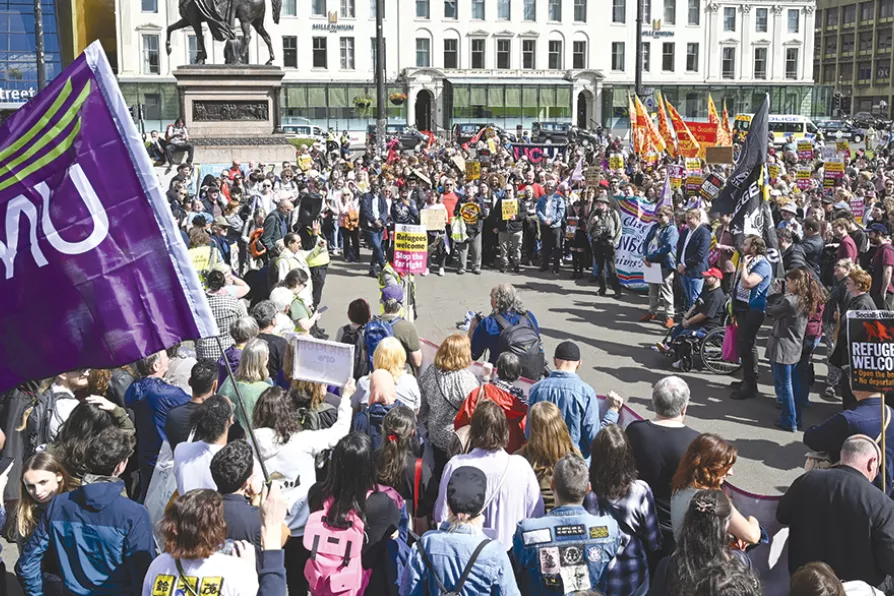The Carpathia isn’t coming to rescue this government still swimming in the mire, writes LINDA PENTZ GUNTER

 NO PASARAN: (Above and below) Anti-racism protest organised by Stand Up to Racism in George Square, Glasgow
NO PASARAN: (Above and below) Anti-racism protest organised by Stand Up to Racism in George Square, Glasgow
THE far right in Britain is growing and society faces a very dangerous situation.
In July, the general election delivered a far-right party, Reform UK, into Parliament for the first time. Nigel Farage claims the party has 85,000 members and is establishing local branches.
In August, racist riots exploded onto our streets, with people from ethnic minorities pulled from their cars and assaulted on their way to work. Rioters ransacked libraries and community centres — we only narrowly avoided deaths in attacks on asylum hotels and mosques.

Once again Tower Hamlets is being targeted by anti-Islam campaigners, this time a revamped and radicalised version of Ukip — the far-right event is now banned by the police, but we’ll be assembling this Saturday to make sure they stay away, says JAYDEE SEAFORTH












